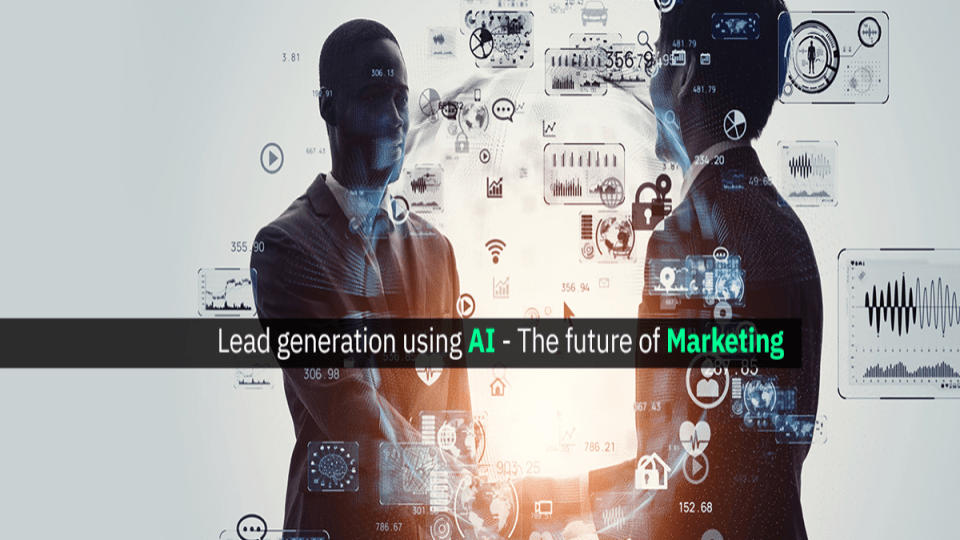How AI Transforms Lead Generation Through Data and Decisions
Data management is one of the key activities that can help define an organization’s development vector and become a weapon against competitors. Perhaps the most important innovation in this field is using AI in lead generation. By using AI in collecting data, a business will be able to transform this data into valuable information, hence making the right decisions that will enhance efficiency.
The move from conventional methods of lead generation to the incorporation of AI in strategies is now the latest phenomenon in organizations. Quite often, it can help to look at a different type of business to see how AI can improve the creation and management of leads.
The Role of AI in Modern Lead Generation
The Transition from Traditional to AI-Powered Strategies
In the old days, lead generation was strictly a manual process mostly informed by ‘gut feeling’. Salespeople always considered the various numbers, data, and trends as they searched for those magical pins that could stick into a sales magnet. This approach, which was useful to some extent, was time-consuming and occasionally inaccurate. Here comes AI to sort it all out and redefine lead generation prospecting, as the two are taken to another level through automation and better methods.
Understanding the Basics of AI in Lead Generation
Applying AI in lead generation thus involves machine learning, natural language processing (NLP), and predictive analytics. These make it possible for organizations to process huge datasets, mine for patterns, and then act on them in real-time, which enhances the quantity and quality of leads.
Key AI Technologies
Machine Learning
Several studies have shown that machine algorithms can analyze vast data and identify improvements from previous interactions. This capability is especially important in lead generation, where establishing which leads are most likely to contribute greatly to the business can help keep it afloat.
Natural Language Processing (NLP)
With NLP, it becomes possible to analyze customers’ interactions, mentions in social networks, and other text-related sources using AI. This technology is useful for determining the customer's stand towards a specific product and vice versa and for determining the efficiency of different lead-generating techniques.
Data as the Foundation for AI in Lead Generation
Data Collection and Management
a. Importance of High-Quality Data: The AI lead generation mostly depends on the quality of the data fed to the software. He went further, noting that inadequate data can lead to wrong analysis and ultimately wrong strategies that any organization can adopt. Data quality, as a component of data effectiveness, includes cleaning, validating, and repeatedly updating its contents.
b. Sources of Data for Lead Generation: Materials may be gathered from customer feedback, specific social media sites, website traffic statistics, and other databases accessible to the company. Each contributes different aspects that help to complete the picture of possible leads.
c. Data Cleaning and Preparation: Data cleaning can be defined as the process of eliminating certain errors, duplicate records, and any information that is not needed in datasets. Proper data preparation is of particular importance in feeding data into artificial intelligence models so as to increase the probability of the right predictions and information.
AI-Powered Lead Scoring
Introduction to Lead Scoring
Lead scoring also refers to rating each lead according to the estimated possibility of conversion. This is particularly true given that the more established means of lead scoring have tended to use more primitive attributes such as job title or company size. AI brings dynamic lead scoring, where lead scores are revised based on real-time data and interaction.
Machine Learning Models for Predictive Lead Scoring
The essence of using machine learning models is to analyze past data to forecast the future conduct of leads. These models consider the abilities, interests, behavior, and activity level, making for more realistic predictions of ‘lead’ status.
AI as an Element of Real-Time Lead Scoring
Lead scoring is real-time in AI, as it can change the score as soon as new information comes in. This capability guarantees that the sales team uses the most current information, making it simpler to prioritize leads.
Predictive Analytics in Lead Generation
AI in Anticipating Lead’s Conduct
Predictive analytics is usually useful in determining the possibility of the lead’s future behavior based on analysis of past behavior. Such forecasts assist the organization in being ready for future actions by the competition and assist the sales team in effective lead management and higher conversion probabilities.
Identifying High-Potential Leads
AI can recognize leads based on several factors of their behavior and the general probability of their further conversion. This enables companies’ sales teams to concentrate on customers with the highest sales potential, increasing the system's efficiency.
Challenges and Limitations of AI in Lead Generation
AI Adoption Roadblocks
Using AI in lead generation is not easy. Some well-known challenges are poor-quality data, a lack of specialists, and, most importantly, the opposition to change. Businesses need to overcome these challenges to realize AI's potential.
Overcoming Data and Technology Barriers
To overcome data and technology-related barriers, the following strategies can be implemented: combining high-quality data, enhancing technology support, and Training and developing employees. These steps contribute to the proposition that businesses can implement AI and gain maximum value.
Future Prospects: AI in lead generation
The use of AI in lead generation is still growing, so the current state is ever-changing. The possibilities are in the further development of AI technologies, the introduction of new AI solutions, and the creation of new approaches and standards. Due to this, it becomes important for organizations to develop ways of obtaining information that will enable them to meet the various trends today.
Conclusion
AI has impacted lead generation in a way that automates tasks, enhances efficiency, and leads to increased accuracy and insights. AI can significantly impact the efficiency of lead generation processes in companies and help achieve better outcomes.
AI has tremendous advantages for lead generation, including analysis, decision-making, and customer treatment. Businesses should implement AI to achieve a competitive edge, enhance lead generation operations, and attain sustainable success. If you want to escalate lead generation to the new universe, consider using AI and investigating the opportunities for data-driven lead generation.








